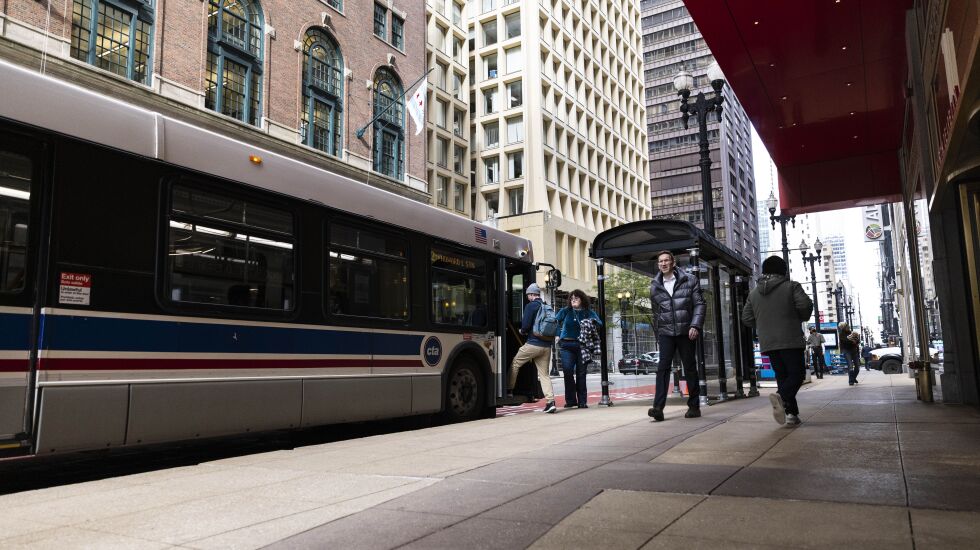
The CTA released its proposed 2023 budget Thursday that keeps all services, avoids fare hikes and retains discounted prices on certain passes that were implemented in last year’s budget.
Jeremy Fine, CTA’s chief financial officer, said it was prudent to keep fares the same and avoid any layoffs as the transit agency “continues to evolve from the pandemic,” and the budget also covers “important modernization” efforts while also “investing in workforce.”
The proposed $1.8 billion spending plan is slightly larger than the $1.7 billion budget in 2022. The CTA has seen its budget increase significantly post-pandemic thanks to federal relief funding. In 2019, the budget was just over $1 billion.
Federal relief dollars will help cover a $390 million shortfall in the budget. CTA has about $1.2 billion of federal relief funding that will help the agency through 2026.
CTA is marginally spending more in labor costs as it looks to hire more staff to address ongoing service problems that affect reliability, such as so-called “ghost” buses due to inconsistencies in bus/train schedules. The proposed budget would increase labor spending from the budgeted $1.24 billion in 2022 to about $1.28 billion in 2023. It is anticipated that labor expenses will also continue increasing in 2024 ($1.32 billion) and in 2025 ($1.37 billion).
But 2022 shows that even if CTA allocates additional dollars to labor it doesn’t necessarily mean vacancies will be filled.
CTA has forecasted it will spend nearly $105 million less overall this year than it had budgeted for.
Brian Steele, a spokesman for CTA, said it is important to encourage people to start using public transportation once again but acknowledged service issues plaguing the agency may discourage some folks from riding. The issue of staffing, he said, would fix most of these problems.
CTA’s well-documented decline of ridership has seen some increase in recent months — averaging about 900,000 weekday rides in September — but is still short of its pre-pandemic ridership averages of around 1.4 million weekday riders.
“We are making progress and addressing this literal once and a century challenge,” Steele said. “This budget does call for staffing levels [to] increase from what we have now.”
The 2023 budget will also maintain its discounted passes in hopes of bringing riders back. This includes one-day ($5), three-day passes ($15), seven-day pass ($20) and 30-day ($75) passes.
The CTA also released a $3.4 billion, five-year capital improvement plan which looks to invest in major projects such as the Red Line extension and modernize CTA’s bus fleet and railroad cars.
According to the plan, there is a need to purchase nearly 600 new buses through 2026 — roughly a third of its fleet.
The most significant undertaking within the plan is the long-awaited project to extend the Red Line south to 130th Street. The $3.6 billion project is heavily dependent on receiving $950 million through a transit TIF — a similar one was created to fund a Red Line project on the North Side.
Releasing those TIF dollars would need approval from City Council, and some alderpersons have stressed reservations about approving the plan after CTA President Dorval Carter Jr. has failed to meet with the council.
Steele wouldn’t say if threats from City Council would motivate Carter to discuss these issues publicly but said he would continue discussing issues with alderpersons on an individual basis.
“President Carter has had and continues to have dialogue on a variety of issues with things related to services, infrastructure and investment, and President Carter has a long history of having dialogue with those officials,” Steele said. “This project [the Red Line extension] is literally a once in a generation thing and so we will continue to have dialogue with elected officials and community members about why this project is so crucial.”
Steele added the project not only provides residents with easier access to rail services, but it will also benefit the community economically by connecting those on the South Side to jobs.







